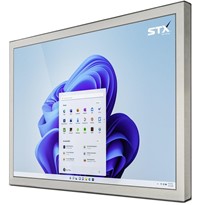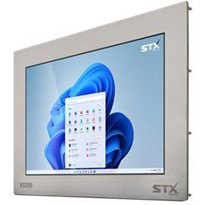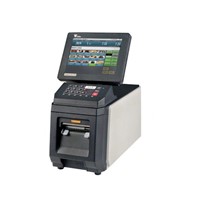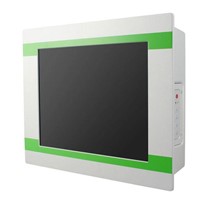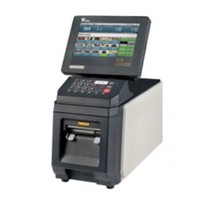In the ever-evolving landscape of industrial automation, reliable control systems are crucial for efficient operations, safety, and seamless monitoring of complex processes. Among the most transformative innovations are industrial panel PCs and touch screen systems, which provide robust, user-friendly, and real-time interfaces for process control, data visualization, and decision-making.
These rugged, integrated computing systems are not just limited to factory floors, they’re reshaping how industries and public spaces interact with technology. In this article, we’ll explore the features, benefits, and diverse applications of industrial panel PCs, along with emerging trends that point to a smarter, more connected future.
What is an Industrial Panel PC?
An industrial panel PC is an all-in-one computing solution specifically engineered for challenging industrial environments. It combines a durable touchscreen display with a high-performance processing unit into a compact, sealed enclosure.
Unlike conventional computers, panel PCs are built to endure extreme temperatures, vibrations, humidity, dust, and chemicals, making them perfect for sectors such as manufacturing, automation, oil and gas, utilities, and logistics.
Their integrated touchscreen interfaces allow operators to directly control systems or visualize data, replacing traditional buttons and reducing the complexity of peripheral setups.
Key Features and Benefits of Industrial Panel PCs
Here are the Key Features and Benefits of Industrial Panel PCs:
1. Advanced Touchscreen Technology
The touchscreen is the primary interface, and its technology can greatly impact performance and usability:
-
Capacitive Touchscreens: Support multi-touch input, high sensitivity, and a sleek glass surface, ideal for clean environments or where quick, precise input is needed.
-
Resistive Touchscreens: Operate via pressure, making them ideal for environments where users wear gloves or use a stylus.
-
Infrared Touchscreens: Use light beams to detect touch, offering high clarity and functionality even in dusty or oily environments.
These touchscreens simplify operations, enhance user experience, and reduce training time.
2. Rugged Design and Environmental Resilience
Industrial panel PCs are designed with IP65 to IP69K ratings, protecting them against water, dust, and impact. They are often made with fanless cooling systems, corrosion-resistant materials, and vibration-dampening components. This ruggedization ensures long-term reliability in harsh industrial settings, such as:
-
Production plants
-
Outdoor installations
-
Cleanrooms
-
Hazardous zones
-
High Performance and Reliability
Equipped with industrial-grade CPUs, SSD storage, and robust memory, these systems offer:
-
24/7 operation
-
Real-time processing
-
Long lifecycle support
-
Low failure rates
They are optimized for running mission-critical software like SCADA (Supervisory Control and Data Acquisition), MES (Manufacturing Execution Systems), and HMI (Human-Machine Interfaces).
-
Customizable, Intuitive Interfaces
Panel PCs feature fully configurable user interfaces that adapt to the specific needs of each operation. These interfaces can display live data dashboards, send real-time alarm notifications, and present visual workflows that guide users through complex processes. Multi-language support further enhances usability for diverse workforces. By centralizing critical information in an accessible and user-friendly format, panel PCs streamline operations, reduce training time, and empower operators to make faster, more informed decisions.
Applications of Industrial Panel PCs in Automation
Industrial panel PCs play a vital role in automation by providing real-time control, data monitoring, and system integration. Their rugged design and advanced connectivity make them ideal for streamlining operations across manufacturing, energy, and other industrial sectors.
1. Machine and Equipment Control Panels
Used as HMI terminals, panel PCs control and monitor machines in industries like:
-
Automotive manufacturing
-
Food and beverage processing
-
Pharmaceuticals
-
Semiconductor production
They allow real-time adjustments, diagnostics, and performance tuning.
2. Data Logging and Process Monitoring
Panel PCs collect and log sensor data such as:
-
Temperature
-
Pressure
-
Speed
-
Power consumption
This enables predictive maintenance, compliance tracking, and process optimization.
3. Integration with SCADA and PLC Systems
Industrial panel PCs interface seamlessly with PLCs and SCADA platforms, forming the bridge between physical machinery and control rooms. Operators can monitor plant-wide performance, initiate remote commands, and receive alerts, all from a single device.
4. Remote Monitoring and IoT Connectivity
With Wi-Fi, 4G/5G, and Ethernet connectivity, these devices enable remote access and integration into Industrial Internet of Things (IIoT) ecosystems. This is especially valuable in industries like:
-
Oil and gas
-
Utilities
-
Mining
where real-time oversight across multiple remote locations is essential.
Expanding Applications Beyond Traditional Industry
5. Self-Service Kiosks
Used in:
-
Retail
-
Banking
-
Hospitality
-
Healthcare
These kiosks provide customers with seamless, interactive self-service — from check-in stations to product lookups and digital ordering.
6. Malls and Retail Centers
In shopping environments, panel PCs serve as:
-
Digital directories
-
Promotional display screens
-
Interactive product catalogs
-
Point-of-sale (POS) terminals
They withstand constant public interaction and provide consistent uptime for business continuity.
7. Airports and Transportation Hubs
Touchscreen systems are used in:
-
Flight check-in kiosks
-
Information booths
-
Passenger tracking systems
-
Digital signage
Rugged design ensures they work reliably in high-traffic, around-the-clock environments.
8. Government and Public Services
Industrial panel PCs support:
-
Public service kiosks
-
Bill payment stations
-
Public transit ticketing systems
-
DMV self-service terminals
Their secure and tamper-resistant design makes them suitable for unattended use.
9. Smart City Infrastructure
Panel PCs play a key role in smart city ecosystems, powering:
-
Traffic control systems
-
Environmental monitoring stations
-
Public Wi-Fi kiosks
-
Emergency response systems
They offer the resilience and connectivity required to support urban infrastructure in real time.
The Future of Industrial Panel PCs
As industries continue to digitize, the role of industrial panel PCs will expand. Key trends include:
-
AI Integration: For predictive maintenance and intelligent control
-
Edge Computing: Real-time processing at the source of data collection
-
5G Connectivity: Faster, low-latency remote access
-
Augmented Reality (AR): For maintenance and training overlays
These advancements will enhance how operators interact with machinery and improve overall system efficiency across sectors.
Conclusion
Industrial panel PCs and touch screen systems are revolutionizing how industries and public spaces operate. Their blend of rugged durability, responsive interfaces, and powerful computing make them indispensable in everything from automated manufacturing lines to smart city infrastructure.
As automation, IoT, and AI reshape global industries, panel PCs will remain at the core of innovation, delivering reliable performance, real-time control, and enhanced user interaction wherever they're deployed.



-160x160-state_article-rel-cat.png)



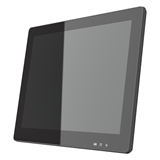

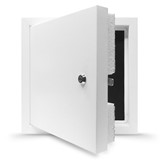


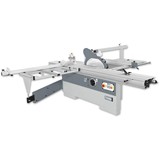
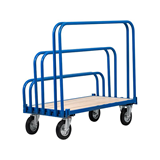

-205x205.jpg)
(2)-205x205.jpg)

